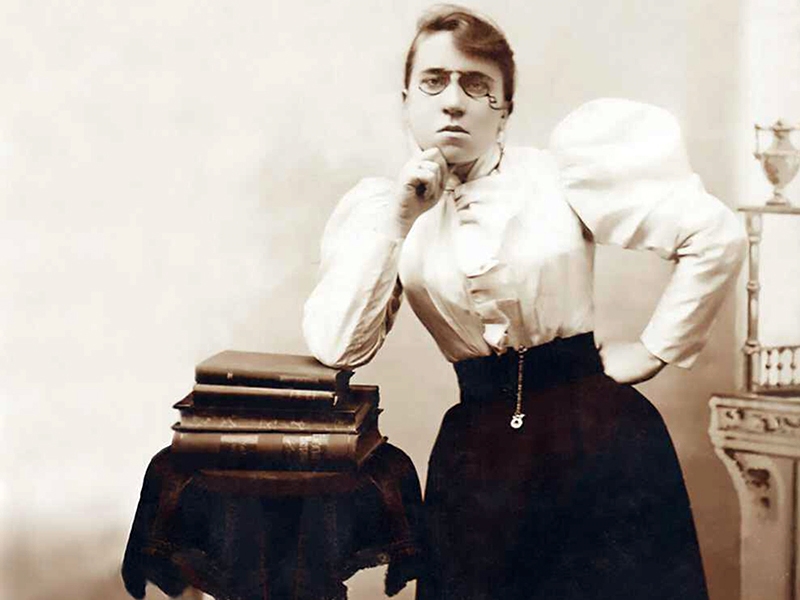Emma Goldman (1869-1940) was a Lithuanian-born Jewish émigré and political radical who fought for improved working conditions for low-income laborers and for decriminalization of birth control, which was illegal at the time. She and her sister fled Russian pogroms in 1885, landing in New York state.
As a result of the persecution she and her community endured in Russia, and the persecution of labor leaders during labor strikes in the United States, she became an anarchist — someone who believed that any form of government is undesirable. The Comstock Act of 1873, which had made both abortion and birth control illegal in the United States, were examples of state tyranny. She protested by committing civil disobedience (illegal acts committed to highlight the injustice of a law): she distributed a pamphlet titled Family Limitation and delivered speeches teaching people how to practice birth control. Like her contemporary Margaret Sanger, she understood the ability to limit fertility in political terms: as an act of women's liberation by reducing their economic dependence on men.
She was arrested in New York City in 1916 and briefly imprisoned. In 1919, she was deported to Russia during a purge of radical émigrés after World War I (aka the Red Scare).
Read more about Emma Goldman at the Library of Congress and ThoughtCo.
This vignette of Emma Goldman was produced by the Chancellor's Commission on Women.
Topics
Contacts
Charlie Alison, executive editor
University Relations
479-575-6731,
